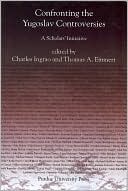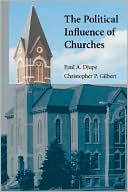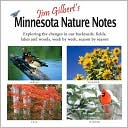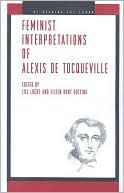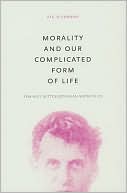Idiosyncratic news and commentary from the Folke Bernadotte Memorial Library of Gustavus Adolphus College.
Monday, December 21, 2009
Interlibrary Loan delays.
Please plan accordingly. If you have questions or concerns, feel free to email me.
You can always find answers to FAQs on the ILL homepage.
Wednesday, December 16, 2009
Take the library with you!
If you'll be away from campus during the holidays or in January, take the library with you! Remember that you can connect to our research databases remotely by linking to them from the library's website -- just log in using the 14-digit barcode from your Gustavus ID as your username, and (in most cases) your last name as your password. This is the same username/password combination you use to place Interlibrary Loan requests.
If you want to test your username and password now to make sure you won't have problems logging in from off campus, view your borrowing record here:
http://gustavus.edu/academics/library/search/borrecord.html. If you're
unable to login to view your borrowing record, contact e-resources@gustavus.edu for assistance.
Monday, December 14, 2009
Illustrated Biblical Views of the Christmas Story

The Gustavus Adolphus College and Lutheran Church Archives has a new semi-permanent display of bibles located outside of the archives reading room. As a tribute to the Christmas season, a number of illustrated bibles have been opened to display various images associated with Jesus’ birth. Many of these rare and unique bibles are hundreds of years old. Please visit the display and see some beautiful and inspiring images. The presentation was made possible thanks to assistance from the following students, Morgen Hagedorn and Tyna Johnson.
Wednesday, December 09, 2009
Of Course We're Open!

Neither rain nor snow nor dark of night ... if it's not a holiday, we're open. At this busy time of year, students have lots of work to do, and if classes are called off, that's just one more chance to get to it.
But if you've spent hours in the library working on papers or studying for exams, sometimes you need a break. Why not help us decorate our tree? There are supplies in the GLA Reading Room. As you can see, some creative folks have already made a start, but there's lots of room for more hand-made ornaments.

Thursday, December 03, 2009
Taking the Mystery out of the Archives

According to some, the College and Lutheran Church archives here at Gustavus are a mystery. It seems people are unaware of the types of materials held in the two different yet related collections.
First, these archives consist of primary source materials created by student organizations, individuals, departments, offices, local churches, and regional church bodies. Most documents, photographs, and recordings held in the archives are found only here and thus have monetary, historical, or sentimental value. The website for the archives
Second, you might be wondering who uses the archives and what types of information are requested. We provide access to materials and help answer questions from students, staff, faculty, alumni, professional researchers, genealogists, and members of the general public. Here are some recent inquiries.
1. When did the first woman graduate from Gustavus?
2. What materials are there documenting the student senate? What is the process to donate additional items?
3. How can I research my local church congregation?
4. Where do I look to learn about the history of Old Main, Rundstrom Hall, the Library, and the Student Union?
5. What World War I posters do you have? A professor is collaborating with local colleagues to develop a teaching plan that helps students learn history by using primary documents.
6. Did members of the anti-war organization the Weathermen ever visit Gustavus?
7. What records exist concerning my relative who was a faculty member at Minnesota College? We hold the records of Minnesota College.
Should you have any additional questions that need answering, please contact the archives.
Monday, November 16, 2009
Christmas and the Holidays at Gustavus

Happy Holidays from the College and Lutheran Church Archives!!
The holiday season is fast approaching. To celebrate, the Archives has put up a new display about past campus events. Come see historic programs and pictures from Christmas in Christ Chapel and the Festival of St. Lucia. The new display, created by archives student worker Birgitta Johnson, is located on the main floor of the Folke Bernadotte Memorial Library, near the reference desk.
Tuesday, November 03, 2009
Information Fluency Course Taught This Spring
NDL 301: Information Fluency - This course will give students interested in going to graduate or professional school—or who simply want to know more about research—an immersion in the structure of the literature of their chosen field and exposure to research tools and collections. Students will develop an extensive literature of their chosen field. They also will keep a research log and develop and extensive literature review for a research question of their choice. Shorter projects will require students to analyze aspects of their discipline’s traditions, to compare them to traditions in other fields, and to explore the social and ethical dimensions of research.
For more information, contact Barbara Fister (fister @ gustavus dot edu).
Friday, October 23, 2009
And Yet More on Open Access
The news is so fresh I don't have anything to link to, but you will no doubt be reading about it in the Chronicle of Higher Education and Inside Higher Ed on Monday.
Thursday, October 22, 2009
More on Open Access

A bill currently in Congress would instruct federal agencies that provide significant funds for research to ensure that the results of that publicly funded research are made public. (That's a lot of "public" in that last sentence, but hey, there's a reason for that. It's a simple equation: public funding of research = public knowledge.)
Publishers of that research - some of them for-profit organizations and others non-profit scholarly societies - are naturally wary of losing their monopoly on content and the revenues brought in by subscriptions, but libraries are having trouble sustaining increasing subscription costs and scholars have been pushing for their right to share their research. Many publishers have already agreed to let authors post copies of their work on institutional websites. (You can find out what publishers' policies are by looking them up in the SHERPA/RoMEO database.)
SPARC, an organization of librarians and scholars who are pushing for open access, have published useful guides such as one on campus collaborations for publishing and another on funding models. Though the Association of American University Presses supported a bill that would rule out open access mandates for publicly-funded research, ten presses broke ranks and issued a statement supporting open access. They've found ways to make it work for them in support of their scholarly mission.
The bill now in Congress - the Federal Research Public Access Act - is limited in scope to only a certain kind of research: that which is funded by public dollars. The National Institutes of Health has shown how this can work with PubMed Central, a clearinghouse of published research funded by NIH grants.
If you'd like to read more about it, seasoned with a dose of opinion, see the Peer to Peer Review column written by one of our librarians in Library Journal's Academic Newswire. Or visit the Alliance for Taxpayer Access site.
Tuesday, October 20, 2009
Open Access Week
Basically, scholars write up their research to share it. They submit it to their peers for review through the channels of book and journal publishers. Then their work becomes a layer of understanding as more research is built upon it and our understanding of the world is deepened.
Or at least that's the theory. In practice, there's a bottleneck.
Though the labor behind creating and reviewing research is part of a scholar's job, not a commercial enterprise, the results are often published by commercial publishers - whose prices can be too expensive for libraries. Journal subscription costs rise some ten percent annually. Some journals cost over $10,000 a year. And since publishers typically assume the copyright over work they publish, libraries that don't subscribe often have to pay $35 - $50 for the right to get a copy of an article made at another library. That money goes to the publisher, not to the author or the library. And that seems particularly odd when the research is paid for by our tax dollars through federal funding for basic research.
The open access movement is an attempt to make research conducted for the public good more easily available to more people. Here's how the Open Access Week website describes it:
Open Access is a growing international movement that uses the Internet to throw open the locked doors that once hid knowledge. It encourages the unrestricted sharing of research results with everyone, everywhere, for the advancement and enjoyment of science and society.
Open Access is the principle that all research should be freely accessible online, immediately after publication, and it’s gaining ever more momentum around the world as research funders and policy makers throw their weight behind it.
The Open Access philosophy was firmly articulated in 2002, when the Budapest Open Access Initiative was introduced. It quickly took root in the scientific and medical communities because it offered an alternative route to research literature that was frequently closed off behind costly subscription barriers.
Now Open Access is on a roll. Recent Funder Mandates — including that of the U.S. National Institutes of Health (the world’s largest research funder), which now requires that all their funded research be placed in an openly accessible database, and Harvard University — have further strengthened the prospects for Open Access to all research.
- Open Access Overview by Peter Suber (OA Guru Extraordinaire)
- Open Access News for the latest info, again provided by Earlham professor Suber
- Digital Koans Charles W. Bailey's blog
- Open Students the blog of a student group supporting access to research
- SPARC: Scholarly Publishing & Academic Resources Coalition a group that's seeking alternatives to business as usual.
Monday, October 19, 2009
Win $1,200!
Applications are now available for the Patricia Lindell Scholarship. The scholarship, established through the generosity of the Gustavus Library Associates, awards a junior or senior student $1,200 to undertake a research project for the Gustavus library. This year's project focuses on how undergraduates utilize space in academic libraries. During spring semester 2010, the recipient of the scholarship will work with Professor Julie Gilbert to design and execute an ethnographic study exploring the use of space in our library; the study will ultimately provide insight into the ways the library can better meet the needs of Gustavus students. To apply, pick up an application at the library circulation desk and complete by November 9. Questions? Contact Julie Gilbert by email at jgilber2@gustavus.edu or x7552.
Tuesday, October 13, 2009
American Archives Month

October is designated by the Society of American Archivists as “American Archives Month.” The SAA calls this month a time to “celebrate the American record” and raise public awareness about the importance of archives to the preservation of American history and culture.
For our part in the celebration, the College Archives is displaying an “Inside Look” at our collection including a display case of various documents and artifacts relating to the history of the college. This display, created by intern Erin Anderson, is located just outside of the archives’ office on the library’s third floor. We will also be offering behind-the-scenes tours of the archives storage and work areas. These two sessions will occur on October 20 at 10:30 am and again on October 26 at 2:30 pm. If you have any questions, please contact Jeff Jenson in the College and Lutheran Church Archives.
Tuesday, October 06, 2009
Nobel Conference 45

If you're on campus this year, chances are you're enjoying the irony of pouring rain on a Nobel Conference concerning water resources.
Regardless, this year's conference promises to be eye-opening. Though water may be an uncertain resource, we certainly have excellent resources related to the conference in our Audio Visual Department in the Library.
Please stop by the service counter on the first floor for more information on our videos.
*Thank you to Paige A. for creating an appealing display featuring some of our materials.*
Thursday, October 01, 2009
Music Everywhere! -New borrowing policy for CD's

We have a vast collection of musical compact discs (aka cd's) in the Music Library. Previously students were unable to borrow them, they needed to be used in the library. Now students have the ability to check out music cd's for a 7 day loan period. This is exciting and we hope students will take advantage of this new collection opening up to them!
Monday, September 28, 2009
Thinking about Grad School in English or Library Science?
Tuesday, September 29, 3:30 PM, Confer 331. Sponsored by Sigma Tau Delta.
Friday, September 25, 2009
Where are those newspapers?
Want to learn more about newspapers available online through the library? Visit our Resources for Newspapers page at http://gustavus.edu/academics/library/libdata_pos/rqs.phtml?subject_id=43
Monday, September 14, 2009
Constitution Day Event - the U.S. Constitution and Immigrants' Rights
We also have a book display in that area on the US constitution. Other related resources include:
Our guide to research on Constitution Law: Civil Rights and Liberties compiled by Anna Hulsberg
U.S. Constitution Annotated via Findlaw
The Founder's Constitution via the University of Chicago Press
Immigration Impact - a blog from the Immigration Policy Center, a research arm of the American Immigration Law Foundation
Immigrants' Rights from the American Civil Liberties Union
The Immigration Debate from National Public Radio

Thursday, September 10, 2009
Water you waiting for? Nobel Conference XLV
A display was developed to highlight some of these historical materials. Displayed items include a brief history of the conference, a listing of topics by decade, and a selection of programs.
The project was made possible by the Gustavus Adolphus College Archives, and these unique materials are available for consultation and study within the archives. This display is located in the Library near the reference desk.
Tuesday, September 08, 2009
New library databases available!
http://gustavus.edu/academics/library/libdata_pos/page.phtml?page_id=245
Thursday, August 27, 2009
ILL service briefly interrupted
You can use this form to request books or articles instead.
Questions? Email us.
Wednesday, August 05, 2009
Green is My Favorite Color

It is the beginning of the new academic year and things are definitely changing around the library. Our print copiers went out the door yesterday and new scanning options are now available in the library. The new scanner (situated next to new printers) is very easy to use and is a "paperless" option to printing. Students can easily scan articles, chapters, etc. and send them to their email account. Gustavus Technology Services also has altered their printing guidelines and amount of paper/units allotted to students before students must pay. They have carefully explained the process on the website.
The library printers have always been the most highly productive printers on campus. We library employees try to recycle many one sided copies that do not get picked up. We still send pounds of paper into the campus recycling. We are hoping that the upcoming year will provide a sense of pride and consideration when students consider their use of paper.
Monday, July 27, 2009
Open to Debate
Michelle Twait created a resource page for the program and several librarians will be on hand to help track down those hard-to-find quotes, facts, texts, and ideas.
Tuesday, July 14, 2009
Interlibrary Loan changes
If you use your ILL borrowing record to keep track of resources you’ve used, please take steps to copy and paste that information to a safe place. Your borrowing history will then be limited to active records – things you currently have checked out, are waiting for and/or have recently returned.
You can access your borrowing record from the Library's homepage or here: http://gustavus.edu/academics/library/search/borrecord.html
After August 1, any ILL records with a terminal status will also be removed from the ILL Total Requests (eliminating that pesky message about exceeding your ILL limit!)
Questions? Call ILL at x7564.
Monday, July 06, 2009
Moodle classes for fall now open
Questions about e-reserves? Click here or call Sonja at x7564.
Sunday, May 24, 2009
Summer Reading - Now You Can

When the last paper is handed in, the final exam taken, you might finally find yourself with time to read. We know, you read all the time - but the rigors of the semester can keep you from reading something just for fun.
Maybe you've always meant to tackle War and Peace or that Jane Austen novel your mother loves. Or maybe you've seen something intriguing in a library display. But you live in Bemidji and you don't want to come all the way back to return some books in a few weeks.
Now you can check books out of the library - for the whole summer! Just ask, and we will extend your due dates until September.
This idea comes courtesy of a smart student. Got more ideas? We'd like to hear them.
photo courtesy of Amos Moses Griffin
Thursday, May 21, 2009
Extended Hours
Main Library Hours
Thursday & Friday - 8:00am - 2:00am
Sat. - 8:00am - 10:00pm
Sunday & Monday - 8:00am - 2:00am
Tuesday - 8:00am - 4:45pm
Music Library
Fri. - 8am - 4:30pm
Sat. 12:00pm - 4:00pm
Sun. - 1:00pm - 9:00pm
Monday - 8:00am - 11:00pm
Tues. - 8:00am - 12:00pm
Good luck to everyone with finals and have a safe and fun summer break!
Saturday, May 02, 2009
Find It - Eventually
Meanwhile, you can check availability of a particular journal in print by searching its title in MnPALS or in electronic full text by browsing through these title lists -
Monday, April 27, 2009
Author Tea, This Thursday
 Gross Anatomies: Fictions of the Physical in American Literature by Laura Behling
Gross Anatomies: Fictions of the Physical in American Literature by Laura Behling
Behling, an associate professor of English, presents a study of the mutilated and fragmented body that appears in United States literature in the nineteenth and early twentieth centuries. These violations of the body suggest a deep concern about human identity, one structured on both fragmentation and augmentation of the body. The mutilated body, willfully damaged by weapons of war and machines of industry, politics and economics, is at the heart of the texts in this study, and serve not only as harbingers of a loss of identity to come, but also embody the unknown and unknowable self.
Stompin’ at the Grand Terrace: A Jazz Memoir in Verse by Philip Bryant
Bryant, a professor of English, presents a new collection of poems and prose pieces in a celebration of family, history, culture, and Chicago’s South Side. Through his poems, Bryan reveals how music forges friendships, communities, and dreams, and how jazz — America’s great original art form — holds the power of possibility to transcend the widest of racial, social, and cultural gaps. An accompanying CD features more than a dozen original compositions — inspired by Bryant’s poems — by renowned jazz pianist Carolyn Wilkins.
Greek Theatre in Context by Eric Dugdale
Dugdale, an associate professor of classics, offers a valuable guide to Greek threatre. The book presents a broad selection of key ancient sources, both visual and literary, about all aspects of performance — including actors, masks, stage props, and choral dancing — as well as scenes from the plays themselves that offer insights to their staging, plots, and reception.
Sophocles: Electra by Eric Dugdale
Dugdale brings classical Greek drama vividly to life in this series of new translations. Students are encouraged to engaged with the text through detailed commentaries, which include suggestions for discussion and analysis.
Confronting the Yugoslav Controveries edited by Tom Emmert
Emmert, a professor of history, helped direct an international consortium of historians, social scientists, and jurists to examine the salient controversies that still divide the peoples of the former Yugoslavia. The book presents a direct assault on the proprietary narratives and interpretations that nationalist politicians and media have impressed on mass culture in the successor states of Bosnia and Herzegovina, Croatia, Kosova, Macedonia, Montenegro, Serbia, and Slovenia.
The Political Influence of Churches by Chris Gilbert
Gilbert, a professor of political science, along with lead author Paul Djupe ‘93, investigate how membership in organized religious bodies shapes the political life of members. They develop a theoretical framework that captures the multifaceted elements of church life that affect individual political attitudes and actions. The book is based on a 1998-2000 study of ELCA and Episcopal congregations, conducted with the assistance of more than 20 Gustavus undergraduate students through a National Science Foundation grant.
Jim Gilbert’s Minnesota Nature Notes by Jim Gilbert
Gilbert, visiting instructor of environmental studies and longtime campus naturalist, through a series of brief essays and remarks focused on each passing week of the year, shares his experiences with observing the changing Minnesota seasons. The wide range of topics include animal tracking in the snow, apple-blossom time, and tapping maple trees.
Feminist Interpretations of Alexis de Tocqueville by Jill Locke
Locke, an associate professor of political science, emphasizes the relationship of Tocqueville’s life and work to modern feminist thought. The book reveals a tidal shift in the reception history of Tocqueville as a result of his serious engagement by feminist, gender, postcolonial, and critical race theorists.
Severed Ties and Silenced Voices by Roger McKnight
McKnight, a professor and acting chair of the Scandinavian studies department, presents a social history of immigrant times, encapsulated in the life histories of Lars Johnson, his wife Caroline, and their nearest neighbor and his family. The story bridges the Old World and New World experience through an account of cultural assimilation, broken relationships, family tragedy, and the search for personal fulfillment in difficult times.
Morality and Our Complicated Form of Life: Feminist Wittgensteinian Metaethics by Peg O’Connor
O’Connor, a professor of gender, women, and sexuality studies and philosophy, draws inspiration from the later Wittgenstein’s philosophy to develop a new approach to the grounding of ethics (i.e., metaethics) that looks to the interconnected nature of social practices, most especially those that Wittgenstein called “language games.” These language-games provide structure and stability to our moral lives at the same time as they permit the flexibility to accommodate change in moral understandings and attitudes.
(descriptions taken from a Gustavus news release.)
news release.



